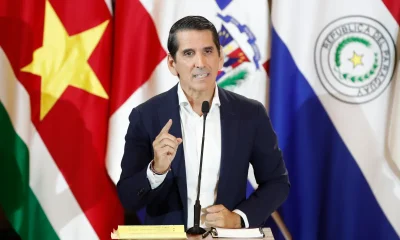Central America
Panamanian government is being asked to review mining contract
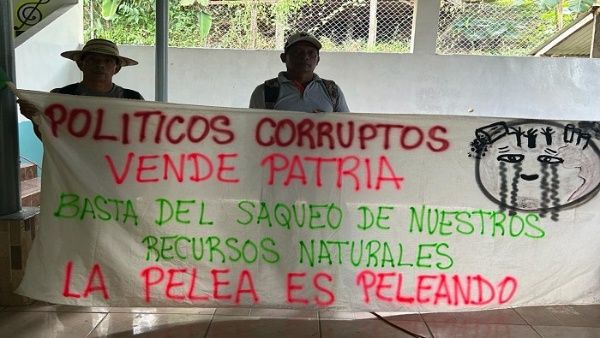
September 7 |
Inhabitants of communities in the Omar Torrijos Herrera district, in the province of Colon, northern Panama, demanded Wednesday that improvements be made to the contract between the Panamanian State and the transnational company Minera Panama and that local suppliers be taken into account.
During the consultation of the contract with the communities, organized by the National Assembly, residents of the community of Coclesito stated that the relationship with the mining company has produced improvements in income and infrastructure.
However, one resident, Abel Oliveros, asked the Minister of Commerce and Industries, Federico Alfaro, to review the mining contract because there are concepts, such as “expropriating land”, which make the residents vulnerable. He added that for decades the Panamanian government never took their opinions into account.
Another resident of the area and local service provider for the mine, Noemí Solís, stated that the communities around the mining project have the right to develop. She stressed the need for the mining company to prioritize local suppliers and offer them opportunities to grow. He explained that “there are people with the capacity and interest” and that the communities need to receive investment and resources.
Discussions with communities on Bill 1043, organized by the Parliament’s Trade and Economic Affairs Committee, have already been held in the Donoso district of Colon. After finishing in Coclesito, it is planned to move to the district of La Pintada, in the province of Coclé, south of Coclé.
Once the opinion of the people has been gathered, the first debate of the document will take place in said commission before sending it to the Plenary of the National Assembly.
Last Tuesday, protests were registered in different points of Panama against the referred contract, which would protect the exploitation of copper by the Canadian mining company First Quantum Minerals LTD. In the opinion of the demonstrators, the contract imposes a colonialist relationship on Panama and would validate the plundering of its natural resources. On the other hand, they denounced that the consultations with the communities are not binding.
International
VP JD Vance to World Cup visitors: “Enjoy the game, then go home”

U.S. Vice President JD Vance issued a light-hearted but firm warning to international visitors planning to attend the 2026 FIFA World Cup, which will be co-hosted by the United States, Canada, and Mexico.
“We know we’ll have visitors, probably from close to a hundred countries. We want them to come. We want them to celebrate. We want them to enjoy the games,” said Vance during a press conference on Tuesday focused on the organization of upcoming major sporting events in the U.S.
“But when it’s over, they’ll have to go home,” he added.
Vance, speaking in a joking tone, also mentioned Homeland Security Secretary Kristi Noem, saying, “Otherwise, they’ll have to speak with Secretary Noem.”
The comment came during the first joint working session aimed at preparing for the 2026 World Cup, which will feature 48 national teams and take place across multiple cities in North America.
Central America
Thousands of Guatemalan girls forced into motherhood due to sexual violence
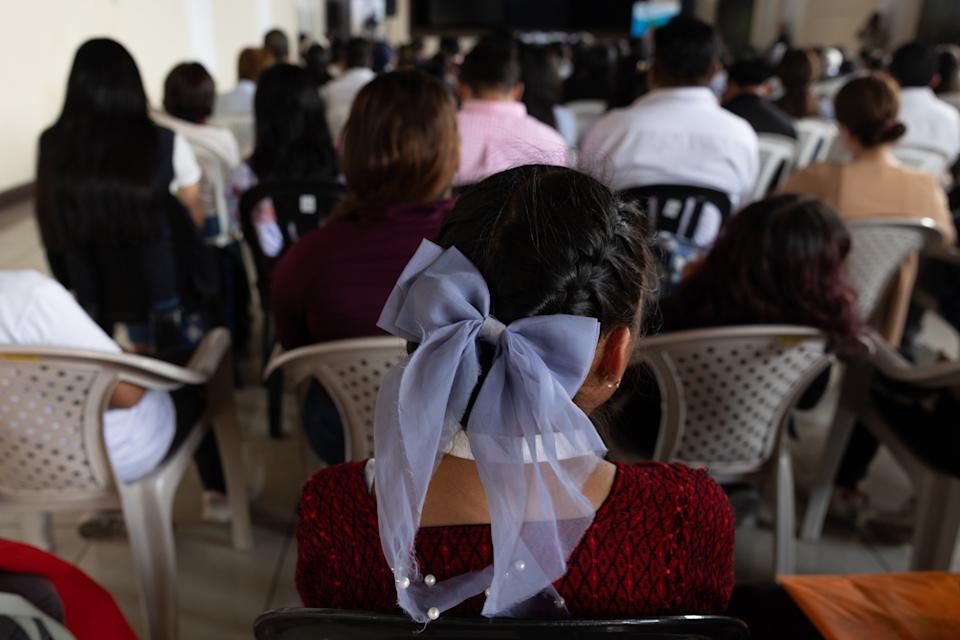
Each year in Guatemala, an average of 2,000 girls aged 10 to 14 become mothers as a result of sexual violence, and 99% of these cases go unpunished, according to a report released Wednesday by the Human Rights Office of the Archdiocese (ODHAG).
“Girls in the country live under state abandonment. They are exposed to a judicial and health system that, upon becoming pregnant, forces them into motherhood and to abandon their life plans,” said Dr. Mirna Montenegro, lead researcher of the investigation, during a press conference.
Montenegro emphasized that between 2022 and 2024, the Ministry of Health recorded 5,937 births to girls aged 10 to 14.
“What’s most alarming is that only 1% of these cases have been brought to court since 2018—just around 100 cases—and this doesn’t mean the accused rapists were convicted,” she stressed.
The investigation also found that the government program “VIDA”, created to support girls who are victims of sexual violence, served only 129 minors in 2024, despite 1,953 pregnancies reported among girls in that age group.
In addition, the report noted that in 2023, 3,064 cases of sexual violence against minors under 19 were reported nationwide. The majority of victims were girls aged 10 to 13.
The areas most affected by child pregnancies include Huehuetenango, Alta Verapaz, and Quiché in the north, as well as Guatemala City in the central region.
According to the most recent Ministry of Health data, as of February 2024, 1,041 girls under 14 had already become mothers. Another 1,005 girls of mestizo origin were also reported to have become mothers due to sexual violence.
Central America
Experts urge action to protect democracy ahead of Honduras elections
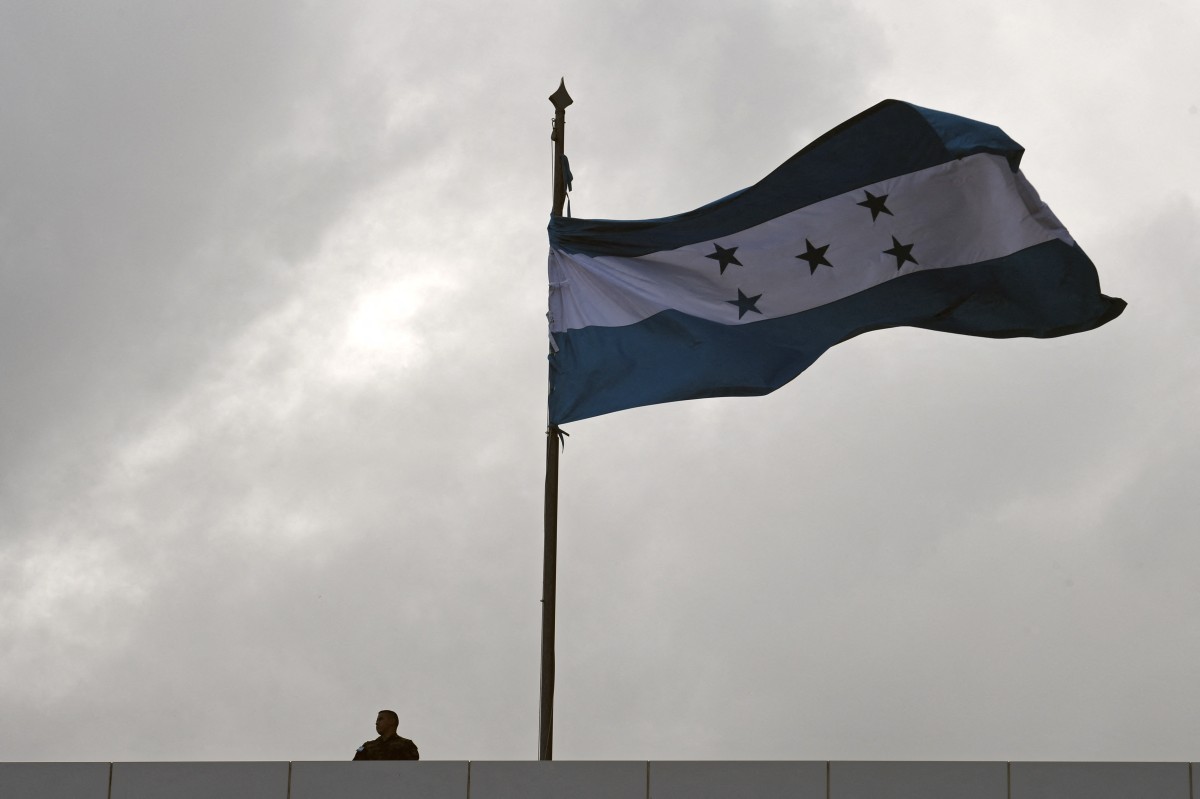
Experts issued an urgent call on Wednesday to confront the threats and systemic flaws that could endanger democracy and civil liberties in Honduras, as the country prepares for its general elections on November 30, when voters will elect a successor to President Xiomara Castro.
César Espinal, coordinator of the Corruption Observatory at the National Anti-Corruption Council (CNA), told EFE that it is crucial to overcome the “atmosphere of uncertainty” generated during the March primaries, which were marred by irregularities in the delivery of electoral materials, causing delays of over twelve hours at several polling centers.
Espinal emphasized that the lack of internal coordination and the institutional weakening of the National Electoral Council (CNE) present major challenges to rebuilding public trust and encouraging strong voter participation.
“We believe that the main challenge lies in the disagreements and lack of coordination within the National Electoral Council, as it is the council members who make key decisions to guide the upcoming electoral process — especially in adhering to the timeline and addressing the various stages from now until November,” he explained.
-

 International4 days ago
International4 days agoHouthis threaten israeli airports, urge airlines to cancel flights
-

 International4 days ago
International4 days agoAmerican Airlines sued after woman alleges sexual assault on flight
-
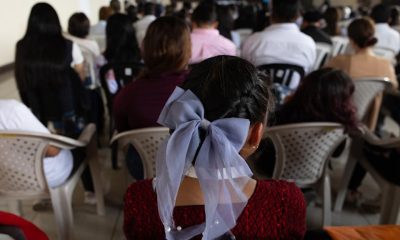
 Central America1 day ago
Central America1 day agoThousands of Guatemalan girls forced into motherhood due to sexual violence
-

 International3 days ago
International3 days agoSinaloa Cartel faction leader ‘Chuy’ Guzmán Castro detained in Mexico amid rising violence
-
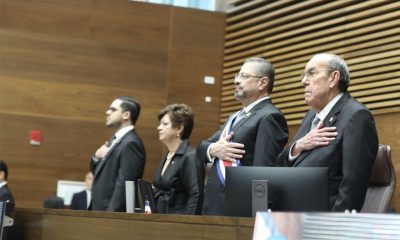
 Central America3 days ago
Central America3 days agoCosta Rica congressional leader warns of authoritarian drift under president Chaves
-

 International3 days ago
International3 days agoProsecutor José Domingo Pérez reinstated in Fujimori corruption case
-

 International3 days ago
International3 days agoSpain approves plan to reduce workweek to 37.5 hours
-

 International3 days ago
International3 days ago“Give me a break”: Trump defends AI image of himself as the Pope
-

 Sin categoría3 days ago
Sin categoría3 days agoPope Francis donated Popemobile transformed into mobile clinic for Gaza’s children
-

 International3 days ago
International3 days agoSheinbaum rejects U.S. military presence in Mexico’s war on drugs
-

 International3 days ago
International3 days agoSins of the Vatican: Scandals, abuse, and a cardinal’s fall from grace
-
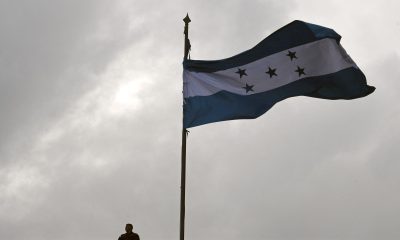
 Central America1 day ago
Central America1 day agoExperts urge action to protect democracy ahead of Honduras elections
-

 International1 day ago
International1 day agoLong wait at the Vatican: experts defend lengthy papal election process
-

 International1 day ago
International1 day agoXiomara Castro’s government vows to protect citizens amid threat reports
-

 Internacionales7 hours ago
Internacionales7 hours ago“A great honor for our country”: Trump congratulates Pope Leo XIV
-

 International7 hours ago
International7 hours agoBill Gates accuses Elon Musk of endangering the world’s poorest children
-

 International7 hours ago
International7 hours agoGates Foundation to close by 2045 as Bill Gates pledges to donate $200 Billion
-

 International7 hours ago
International7 hours agoStrong winds cause stage collapse in Mexico City; seven hurt
-

 International7 hours ago
International7 hours agoVP JD Vance to World Cup visitors: “Enjoy the game, then go home”




























